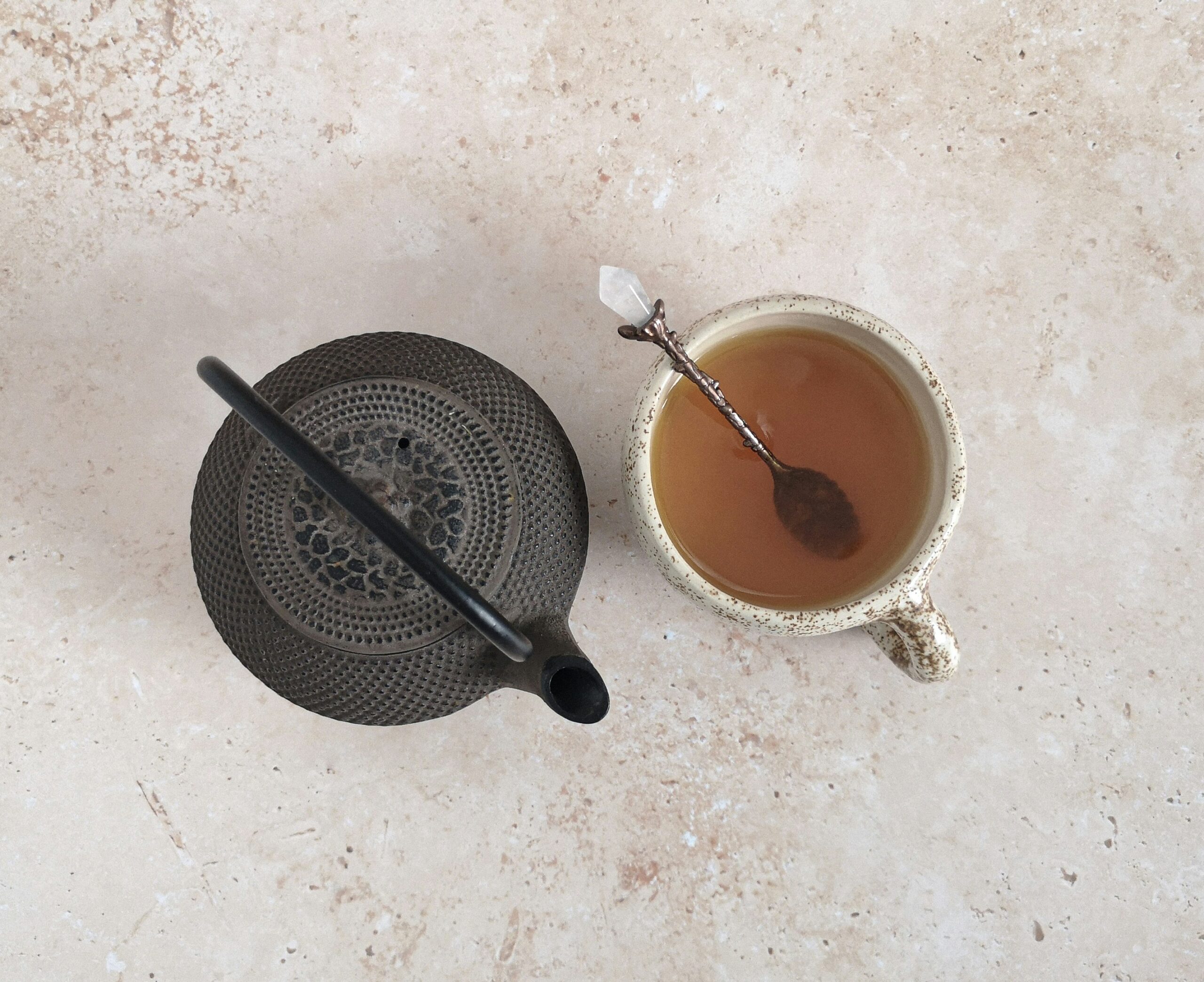

Experiencing sexual pain during sexual intercourse can be distressing and may significantly affect your quality of life and intimacy. It’s essential to recognise that this is a common issue that many people face, and there are numerous ways to manage and potentially reduce discomfort. One route to consider is the implementation treatment options for at home remedies that can ease pain and enhance comfort during sexual activities.
Today we get into sexual health, and more specifically … how to to reduce pain during intercourse. Effective communication with your partner plays a crucial role in addressing discomfort during intercourse. Discussing preferences, concerns, and any discomfort can help both of you understand each other’s needs and make adjustments accordingly. Additionally, simple changes such as trying different positions, increasing foreplay to improve sexual arousal, and using adequate lubrication can make a significant difference in avoiding deep pain. Strengthening pelvic floor muscles is another home remedy that may contribute to reducing pain and enhancing sexual satisfaction.
Key Takeaways
- Open communication with your partner is crucial for a comfortable sexual experience.
- Extended foreplay and proper lubrication can ease discomfort during intercourse.
- Strengthening your pelvic floor muscles might help alleviate pain.
SO WHAT ARE WE TALKING ABOUT TODAY?
- Understanding Painful Intercourse
- Significance of Adequate Lubrication
- The Role of Foreplay and Arousal
- Effective Communication with Your Partner
- Optimising Sexual Positions
- Strengthening Pelvic Floor Muscles
- External Factors Affecting Sexual Experience
- Considering Medical and Non-Medical Remedies
- Natural and Home Remedies
- Navigating Sex After Childbirth or Surgery
- Frequently Asked Questions
Understanding Painful Intercourse
Experiencing discomfort during sexual activity can be distressing, but you’re not alone … it is a common problem. This section aims to shed light on possible causes … or different reasons as to why it might be happening and the underlying medical issues that could be responsible.
Common Causes of Discomfort
Psychological factors: Stress and anxiety can contribute to a condition called vaginismus, where the vaginal muscles involuntarily tighten, making intercourse painful or impossible.
Hormonal changes: Menopause and other conditions leading to low estrogen levels can cause vaginal dryness and thinning of vaginal tissues, often resulting in painful intercourse.
Lack of arousal: Without sufficient arousal, there is a lack of lubrication, which can cause discomfort or pain during sexual activity.
Medical Conditions Linked to Pain
Endometriosis: A condition where tissue similar to the lining inside the uterus is found outside the uterus, which can lead to significant pain during intercourse.
Pelvic Inflammatory Disease (PID): An infection of the female reproductive organs that can cause discomfort or pain during sex and other symptoms.
Dyspareunia: This is a term for recurring pain in the genitals or pelvic area during sexual intercourse. Several conditions can cause dyspareunia, including infections, which can lead to inflammation and pain.
Vulvodynia: Chronic pain or discomfort around the opening of the vagina, for which there’s often no identifiable cause, making sexual activity painful.
If you’re experiencing any of these symptoms, it’s important to consult with a healthcare professional for diagnosis and treatment. Remember, effective management and relief are possible, and you deserve a comfortable sexual experience.
Significance of Adequate Lubrication
When engaging in intimate activities, having enough lubrication is key. It can greatly reduce discomfort and improve your overall sexual experience. Let’s explore how you can address vaginal dryness.
Overcoming Vaginal Dryness
If you’re experiencing vaginal dryness, it’s not uncommon, especially considering factors like menopause or hormonal changes. First, know that lubricants such as a water-soluble lubricant can be a game-changer when promoting vaginal moisture. They work by supplementing your body’s natural lubrication, and can be particularly helpful if your dryness is due to a decrease in arousal or hormonal variations.
Finding the right lubricant is essential; water-based options are generally recommended as they are kind to your skin and tend to cause fewer reactions. Postmenopausal women, may find that their body doesn’t produce the same levels of natural lubrication due to hormonal shifts. In such cases, using a lubricant can not only alleviate pain during sex but also enhance pleasure.
Remember that everyone’s body is different, and it may take some experimentation to find the product that works best for you. Don’t be afraid to try different types until you find the one that feels the most natural and comfortable.
For more detailed insights into experiences with lubricants, particularly in women who may be going through hormonal changes or experiencing dyspareunia (painful intercourse), you might want to read about other people’s experiences and perceptions of lubricant use. Understanding the nuances of how lubricants can affect sexual activity can empower you to make informed choices about your comfort and pleasure.
The Role of Foreplay and Arousal
Before diving into intimacy, it’s essential to understand that proper foreplay and arousal can significantly reduce discomfort during intercourse. It assists in natural lubrication and relaxes the body, making the experience more enjoyable and less painful.
Enhancing Intimacy
Foreplay is not just a precursor to intercourse; it’s a fundamental component of the sexual experience, especially when it comes to heightening arousal. When you engage in extended foreplay, you allow your body to prepare physically, which can help minimise pain.
Consider these specific actions to nurture intimacy and arousal:
- Kissing: Deep, passionate kissing can boost your heart rate and increase blood flow, naturally increasing lubrication and reducing pain.
- Communication: Conveying your desires and comfort levels can create a more connected and understanding environment for both partners.
- Touch: Gentle and exploratory touches across each other’s bodies can increase sexual desire and anticipation, leading to a more naturally lubricated state.
- Pace: Taking things slow allows for the natural progression of arousal, making the transition to intercourse smoother and potentially more comfortable.
Remember, every moment of closeness counts. Foreplay is about building the connection and ensuring a mutually gratifying experience. By focusing on these aspects, you can create a trusting environment conducive to a pain-free and pleasurable encounter.
Effective Communication with Your Partner
Open and honest conversation with your partner is essential when dealing with discomfort during intimate moments. It’s not just about expressing the existence of pain but also sharing personal preferences and seeking a supportive understanding that can lead to a more pleasurable experience for both of you.
Discussing Pain and Preferences
When you’re experiencing discomfort during intercourse, it’s crucial to have a conversation with your sexual partner. This isn’t simply for the sake of disclosure but to foster a collaborative atmosphere where both of you can work towards a solution. Here’s how you can approach this sensitive subject:
- Begin by choosing the right time: Avoid bringing up the topic during intimacy. Instead, find a quiet moment when both of you are relaxed and open to discussion.
- Express your feelings and experiences: Use ‘I’ statements to avoid blaming. For example, “I feel discomfort when we do this…” This centres the conversation on your experience and not your partner’s actions.
- Be clear about what triggers the pain: Is it a certain position or act that causes discomfort? Identifying specifics can help in finding alternative approaches that are more comfortable.
- Ask for your partner’s thoughts and feelings: This invites your partner to share their own experiences, fears, or concerns, which can help strengthen your relationship by building empathy and understanding.
- Discuss preferences and alternatives: Share what feels good and explore new options together. Being open to experimentation can lead to discovering enjoyable ways to maintain intimacy without pain.
Remember, effective communication is a process that doesn’t just involve talking; it also includes active listening. Listen attentively to your partner’s responses and reassure them that working through this is important to you.
Optimising Sexual Positions
When seeking to reduce discomfort during intercourse, the selection of the right position can greatly affect your comfort level. It is essential to find positions that minimise pain and maximise pleasure, often by controlling the depth of penetration and utilising angles that reduce strain on your muscles.
Finding Comfortable Angles
Experiment with Different Positions: Every individual’s body is unique, which means a position that works well for someone else might not be the best for you. Start by exploring positions that allow you to control the angle and depth of penetration. The female superior position or a side-to-side position can provide this control, enabling a gentle approach to penetration.
- Use Pillows for Support: Placing pillows under your hips or lower back can adjust your pelvic angle and provide additional support, leading to more comfortable penetration. This small change can significantly reduce discomfort by alleviating pressure on sensitive areas.
- Communicate with Your Partner: It’s vital to keep the lines of communication open during sexual activities. If something feels painful, let your partner know. Together, you can adjust your movements or switch to a different position that feels better for you.
Remember, the goal is to find positions that feel good and do not cause additional strain on your muscles. Take your time, listen to your body, and don’t hesitate to try different positions until you find the ones that offer the most comfort for your intimate moments.
Strengthening Pelvic Floor Muscles
Improving the strength of your pelvic floor muscles can be instrumental in reducing pain during intercourse. Properly executed exercises can offer both short-term relief and long-term benefits.
Exercises and Techniques
Kegels: These are the go-to exercises for strengthening your pelvic floor muscles. To perform a Kegel, imagine you’re trying to stop the flow of urine. Clench those muscles for about 10 seconds and then relax for another 10 seconds. Aim to do three sets of 10 repetitions each day.
Pelvic Tilts: This exercise helps to not only strengthen the pelvic floor but also to improve your core stability. Lie on your back with knees bent and feet flat on the floor. Slowly tilt your pelvis upward by contracting your abdominal muscles and then your pelvic floor muscles. Hold for a few seconds before slowly returning to the starting position.
Squats: A powerful way to engage and strengthen your pelvic floor is through squats. Stand with your feet shoulder-width apart and lower yourself into a squat position as if you are about to sit in a chair, keeping your weight on your heels. Ensure your knees don’t go over your toes.
Bridges: Start by lying on your back with your knees bent and feet flat on the ground. Lift your hips off the ground by engaging your glutes and pelvic floor, and then bring them back down. This move targets multiple muscles, including those in your pelvic floor.
Yoga and Pilates: These forms of exercises not only enhance flexibility but also focus significantly on the pelvic area, providing both strength and relaxation to the pelvic floor muscles.
Remember, consistency is key when it comes to exercises; aim to integrate them into your daily routine for the best outcome. It may take weeks to start noticing improvements, so be patient and maintain a regular practice. If you’re uncertain about your technique, it might be beneficial to consult with a physiotherapist who specialises in pelvic health.
External Factors Affecting Sexual Experience
When it comes to a fulfilling sexual experience, external factors such as your lifestyle, levels of stress, and emotional well-being play a significant role. It’s important to understand that what happens outside the bedroom can have a profound impact on your comfort and enjoyment during intercourse.
Lifestyle and Stress Management
Your lifestyle choices can either contribute to or alleviate discomfort during sex … it might be time to consider lifestyle changes. Regular exercise, for instance, can improve your body’s flexibility and blood flow, potentially reducing pain. Staying active might also boost your self-confidence, which can be beneficial in intimate situations.
On the flip side, stress is a notorious mood killer, often leading to anxiety that can make relaxing during intercourse challenging. It’s crucial to find effective ways to manage stress, such as practising mindfulness or yoga, which can, in turn, help alleviate anxiety levels. Remember, if your mind is tangled in the day’s worries, your body might follow suit, tensing up and possibly leading to discomfort.
Your relationship dynamics play a part as well. Open communication with your partner about desires and discomfort can establish trust and improve your shared experiences. Emotional intimacy strengthens physical connections, so fostering a strong bond is key.
If you’ve experienced sexual abuse or have feelings of guilt or shame associated with sex, these emotions can also manifest as physical pain during intercourse. It’s essential to seek professional support to work through these complex emotions and overcome barriers to a satisfying sex life.
Considering Medical and Non-Medical Remedies
Exploring both medical and non-medical options can be vital in reducing discomfort during intercourse. This includes consulting healthcare professionals, considering prescribed medications, or discovering home remedies that may alleviate pain.
When to Consult a Doctor
If you’re experiencing recurring pain during intercourse, it’s important to consult a doctor to rule out any underlying medical conditions. In some cases, pain can be symptomatic of an infection which may require antibiotics, or it could be linked to a more complex medical condition that warrants a targeted treatment plan. Consulting a doctor can also provide insight into whether hormonal treatments or topical estrogen therapies like ospemifene could be beneficial for you.
Available Medications and Treatments
Once more serious causes have been ruled out or diagnosed, your doctor might recommend several medications and treatments. Good news, treatments can range widely, from over-the-counter remedies to prescription medications. Here’s a brief breakdown:
- Topical Treatments:
- Topical estrogen creams: Applied directly to alleviate vaginal dryness.
- Over-the-counter lubricants: To reduce friction and discomfort.
- Oral Medications:
- Hormonal treatments: Such as birth control pills that regulate or manage hormonal levels.
- Ospemifene: An oral medication designed to treat pain due to vaginal dryness.
- Prescription Medications:
- If an underlying infection is the cause, a doctor may prescribe antibiotics.
- For specific conditions, other prescription drugs may be recommended.
It’s worth noting that combining medical advice with non-medical remedies can lead to the best outcome in managing pain during intercourse. Always heed the advice of your medical practitioner before starting or changing any treatment regimen.
Natural and Home Remedies
If you’re experiencing discomfort during intercourse, know that there are a number of home-based strategies you can try to alleviate the pain. These remedies focus on natural and accessible possible solutions designed for your comfort and relief.
Alleviating Symptoms at Home
Addressing Dryness: For many, dryness can be a primary cause of discomfort during sex. Simple home remedies include the use of natural lubricants such as aloe vera or coconut oil, which can provide the necessary moisture without the chemicals found in some commercial products.
- Aloe Vera: This natural moisturiser can be applied directly to the affected area for soothing relief.
- Benefits: Known for its soothing and moisturizing properties, aloe vera gel can help reduce vaginal dryness and irritation.
- Usage: Apply 100% pure aloe vera gel to the vaginal area before intercourse. Ensure it is free from additives and fragrances to avoid irritation.
- Coconut Oil: A small amount can prove effective as a lubricant and has antibacterial properties.
- Benefits: Coconut oil is a natural lubricant with antimicrobial properties that can prevent infections and soothe irritation.
- Usage: Apply a small amount of coconut oil to the vaginal area before intercourse.
- Vitamin E Oil
- Benefits: Vitamin E oil provides excellent lubrication and has healing properties that can soothe irritated tissues.
- Usage: Use vitamin E oil capsules or pure vitamin E oil. Apply a small amount to the vaginal area prior to intercourse.
- Red Clover
- Benefits: Red clover contains phytoestrogens that help balance estrogen levels, improving vaginal lubrication and reducing dryness.
- Usage: Take red clover supplements or drink red clover tea regularly to help maintain vaginal health.
- Calendula
- Benefits: Calendula has anti-inflammatory and healing properties that can soothe and heal vaginal tissues.
- Usage: Use calendula ointment or infused oil on the vaginal area to reduce pain and promote healing.
Remember to patch test any natural oils on a small area of your skin first to ensure you do not have an adverse reaction.
Practising Good Hygiene: It’s important to maintain good personal hygiene, but avoid harsh soaps or chemicals that may further irritate sensitive tissues. Instead, choose mild, unscented washes specifically formulated for intimate areas.
Exploring Natural Options: There are home remedies beyond lubrication that might help. Sitting in a warm bath can relax your muscles, taking the edge off any potential pain. You might also explore the healing properties of certain herbs in consultation with a healthcare provider.
- Warm Baths: These can ease overall tension and prepare your body for a more comfortable experience.
- Herbal Solutions: Varied herbs and supplements are traditionally believed to facilitate comfort, but their efficacy and safety should be evaluated by your GP.
When exploring remedies, always consider your own body’s reactions and consult with a healthcare professional if you’re uncertain about the suitability of a natural remedy. Enjoy the journey to finding what works best for your body.
RELATED: Herbal Remedies For Vaginal Dryness: Natural Options For Relief
Navigating Sex After Childbirth or Surgery
After going through a significant physical event like childbirth or pelvic surgery, jumping back into sexual activity might come with discomfort or pain. It’s important to acknowledge that recovery can be a deeply personal journey, and patience is key.
Progressive Healing and Patience
Your body needs time to heal after childbirth or surgery, and this includes tissues within the pelvis that may have sustained injury or trauma. Start with understanding that progressive healing is pivotal.
- Allow Time: Giving your body the time it deserves to heal is essential. Rushing the process can lead to further pain or injury.
- Pain Awareness: Be mindful of any discomfort. Pain can be an indicator of the body’s readiness for sexual activity.
Remember, it’s not unusual for sex to be uncomfortable initially after these experiences. Prioritising your comfort and ease back into intimacy with patience and self-compassion. If pain persists, consider consulting with a healthcare professional for personalised advice.
Frequently Asked Questions
Exploring natural remedies and techniques, here’s what you can do to ease the discomfort during intimate moments.
What are some natural methods to alleviate discomfort during intimacy?
Using natural oils as lubricants can often help in reducing friction and discomfort. Warm baths before intimacy and relaxation techniques like deep breathing might also bring relief.
Which lubricants offer the best pain relief for sensitive experiences?
Water-based lubricants are typically recommended as they are gentle and less likely to cause irritation. Look for products that are fragrance-free and designed for sensitive skin to lower the chance of discomfort.
Are there specific techniques to reduce entry pain while being intimate?
Yes, positions that allow you to control the depth and speed of penetration can be helpful. Communicating with your partner to go slow and using plenty of lubrication can make a significant difference in reducing entry pain.
How do I address lower abdominal pain associated with sexual activity?
Lower abdominal pain could be linked to deeper conditions such as endometriosis. Applying heat packs post-activity may alleviate pain, but considering a medical consultation is important if the pain persists.
What remedies are available to help with sharp pain during thrusting?
Adjusting positions to find what’s most comfortable is key. Additionally, engaging in extended foreplay to ensure natural lubrication may help ease sharp pain during thrusting.
How can bleeding and pain during intercourse be managed at home?
If you’re experiencing bleeding and discomfort, it’s recommended to pause intercourse and apply a cool compress for immediate relief. Consult your GP, as bleeding could indicate an underlying health issue.



Comments +